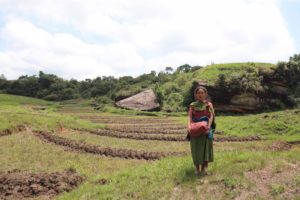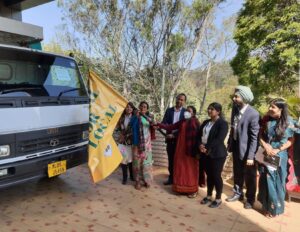Ever since its establishment in the year 2012, NESFAS has primarily focused on reviving, defending, and promoting Indigenous Peoples’ Food Systems. The organization has been dedicated to addressing various issues related to food security and sovereignty, health, nutrition, green and local livelihoods and green energy. NESFAS has continuously worked with indigenous communities from Meghalaya and other states to ensure their rights to cultural identity, food sovereignty, and nutritional security.
In January 2024, NESFAS launched a project titled “Demonstrate successful community-based initiatives and innovate to create healthy and sustainable food systems to conserve/manage biodiversity, build climate resilience, improve nutrition, and improve local livelihoods”, which is set to run till December 2026. Funded by the The Indigenous Peoples Assistance Facility (IPAF) of the International Fund for Agricultural Development (UN-IFAD), the project combines the principles of the community-led school midday meals initiative with the Indigenous Peoples’ Biocentric Restoration project for sustainable local food systems and the management of natural resources.
Currently, the project covers 5 indigenous communities from Meghalaya, viz. Umwang Nongbah, Plasha from Ri Bhoi District and Mawbri, Laityndop, and Mawstep from East Khasi Hills District. It is aimed at conserving and managing biodiversity, building climate resilience, improving nutrition and local livelihoods with focus on the following outputs:
- Increased food production of micro-nutrient rich and climate resilient foods
- Improved nutrition amongst children and women
- Capacity building amongst youth and women
- Catalyzing Global Action
As part of the project, 200 indigenous peoples will be supported with capacity building in technologies like composting technique, biofertilizer, seedkeeping, etc. This is aimed at increasing food production, harvest and gathering, particularly of micro-nutrient rich and climate resilient local foods.
The project will also directly help the youth and women to enhance their income potential by means of various capacity building initiatives such as training in value addition on local food produce. Farmers’ markets will also be organized to encourage conscious consumer choices and purchases of nutritious and climate-resilient foods.
To ensure that the project has a far reaching impact among Indigenous communities in the state and beyond, 10 indigenous youths have been trained in participatory video documentation for the production of a participatory video for the said project.
Among other activities, this project will also scale out the community-led school meals initiative facilitated by NESFAS focusing on the increased consumption of wild edibles and local procurement model.
Recognizing the importance of local knowledge and fostering collaboration with the knowledge holders, the project has set a remarkable precedent. And along with the impact from the preceding projects, it has helped garnered gradual recognition from policymakers on the importance of Indigenous Peoples Food Systems as nature-based game changers to achieving food security. The project, which has 30 months to run, continues to be an exemplary initiative that combines traditional wisdom, innovation, and community engagement. It not only addresses immediate challenges related to natural resource management but also empowers indigenous communities to be the architects of their own sustainable futures.





